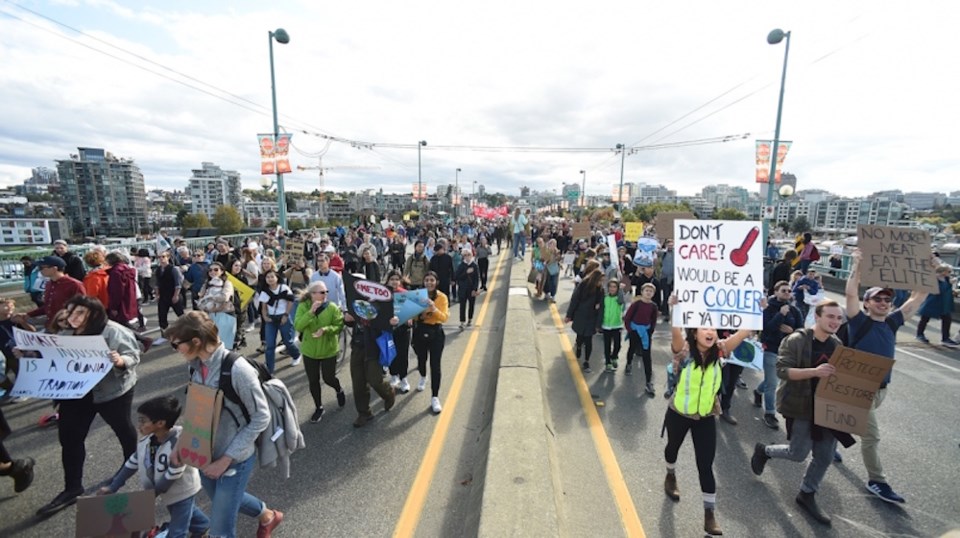We have just under two more months to go in a unique year for British Columbians. We are one year removed from the municipal elections that brought new mayors to several municipalities, about a year away from the next provincial election and two years away from a federal election. This is the moment for political parties to review who is seeking office and what issues will motivate the public to either stick with who they have or vote for change.
When Research Co. and Glacier Media reviewed the activism of the province’s residents last month, about one in four told us they have relied on social media to protest or support an issue (25 per cent) or donated money to an organization that supports or opposes an issue (23 per cent).
Fewer British Columbians have ever attended a public consultation meeting or process (17 per cent), attended a protest (16 per cent), been members of a political party (nine per cent), joined a political campaign (six per cent) or taken legal action against a development or project (four per cent).
Practically half of the province’s residents (49 per cent) have not participated in any of these seven activities, including 55 per cent of those aged 35 to 54. An interesting picture emerges when we look at British Columbia’s youngest and oldest adults. Those aged 18 to 34 do most of their activism on social media (32 per cent), while those aged 55 and over are more likely to show up at public consultations (31 per cent). These two different ways of making voices heard see tepid support among middle-aged residents.
Our survey asked British Columbians about the position they would take if 12 establishments were to seek a permit to set-up within the boundaries of their municipality. Most residents would take no action on four of them: Wind turbines (63 per cent, down four points ), a recycling plant (61 per cent, down three points), a casino (61 per cent, down one point) and a military base (58 per cent, up one point).
Two items that are related to energy are more contentious, with 47 per cent of British Columbians (up four points) saying they would take no action if a natural gas pipeline ran through their municipality, and 43 per cent (also up four points) expressing the same feelings on an oil pipeline. This represents a noticeable reduction in either passive protest, such as sending letters to politicians or complaining on social media, and active protest, such as donating to opponents or attending town halls.
Other establishments remain “no-go zones” for residents. Fewer than two in five would take no action if a prison (38 per cent, down three points), an incinerator for waste treatment (38 per cent, unchanged), a landfill site for waste disposal (37 per cent, unchanged), an oil refinery (36 per cent, up two points), a nuclear power plant (34 per cent, up four points) or a coal terminal (32 per cent, up one point) were considered for their municipality.
When the questions are related to establishments that would materialize within three blocks of a respondent’s home, resistance is lower than it was in 2022. More than half of British Columbians would take no action if a hospital (68 per cent, down seven points), a pub or bar (65 per cent, down four points), an entertainment complex (64 per cent, down five points), a mall (62 per cent, down three points), a recycling depot (58 per cent, down five points), a marijuana store (54 per cent, down six points) or a cell phone tower (53 per cent, down one point) were established nearby.
The activism rating is lower on four items: A low-income housing project (49 per cent, down nine points), a composting site (38 per cent, down five points), a homeless shelter (36 per cent, down seven points) and a sewage or wastewater treatment plant (28 per cent, down three points).
The drop in the proportion of British Columbians who would take no action if a low-income housing project emerged three blocks from their home is eye-catching. As expected, there are some regional nuances. Majorities of those who reside in the Fraser Valley (54 per cent), Vancouver Island (53 per cent) and Southern 小蓝视频 (53 per cent) have no problem. The results are different in Metro Vancouver (46 per cent) and Northern 小蓝视频 (29 per cent).
This year’s survey shows British Columbians becoming more welcoming of specific developments inside their municipality and near their homes, but not universally. At a time when is identified as the most important issue facing the province, the proportion of British Columbians who would actively protest a homeless shelter within three blocks of their home increased from 20 per cent in 2022 to 26 per cent in 2023. Only a sewage or wastewater treatment plant would provoke a higher level of active protest (28 per cent).
Mario Canseco is president of Research Co.
Results are based on an online study conducted from Oct. 12-14, 2023, among 800 adults in British Columbia. The data has been statistically weighted according to Canadian census figures for age, gender and region in British Columbia. The margin of error – which measures sample variability – is plus or minus 3.5 percentage points, nineteen times out of twenty.





